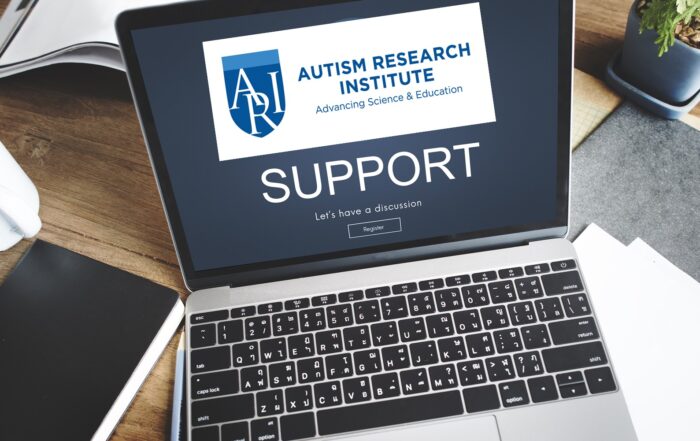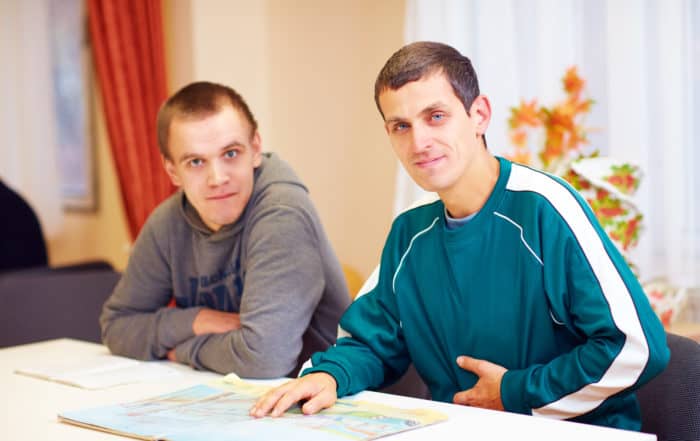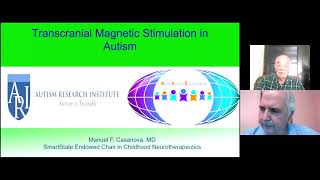For the past 50 years, ARI has dedicated its efforts to pioneering groundbreaking research and sharing free educational resources with people around the world. One of our main channels for distributing this information is through our online webinars. This year, we’re proud to feature many great scientists and health care, professionals on many different topics. All of our webinars this year were equally imporatnt to us and can be replayed at any time. That being said, we are pleased to share with you a list of five of our most attended webinars of 2019.
#5 Sensory Processing and ASD
Virginia Spielmann, MSOT, is the Executive Director of the STAR Institute for Sensory Processing. She is also a well-traveled speaker, coach, and educator on topics including sensory integration, DIR/Floortime, child development and infant mental health. In this hour-long webinar, she covers the fundamentals of how all humans process their surroundings using their sensory processing systems. She then examines the neurobiological reasoning behind disordered sensory processing, as seen in individuals with Autism Spectrum Disorder. Finally, she shares her expertise on intervention methods that can be used to help individuals with autism improve their ability to process their surroundings and ways that neurotypical individuals can make small changes to help support them.
#4 Learning Behavioral Strategies: Child and Parent Outcomes
In this presentation, we hear from three diverse perspectives on the subject of parent-focused and child-focused interventions for autism. Suzannah Joy Iadarola, Ph.D., is a pediatric psychologist that supports community and research programs for individuals with autism and their families. Caitlin LeGros, MSN, CNM and Lisa Latten, MSEd. are both clinicians as well as parents of children affected by autism. These three speakers give us in-depth insights into autism treatment from both personal and professional points of view. They mention the positive outcomes that interventions can have on child development and family dynamics. They also take time to acknowledge the strain that treatment can put on a caregiver, and give examples of self-care mechanisms that can be used to counteract stress.
#3 Mood and ASD: Nutritional Strategies for Anxiety and Depression
Vicki Kobliner is a Registered Dietitian and owner of Holcare Nutrition. She practices a functional nutrition approach that helps the body heal itself, and has extensive experience using various diet modalities to help children with autism and related disorders. Vicki works with infants, children, and adults with chronic illnesses, digestive disorders, food allergies, ADHD, and autism, and provides fertility and prenatal nutrition counseling. In this Q&A session, Vicki answers live questions from the audience regarding nutritional cause and effect on mood in individuals with autism, and strategies for improvement. If you enjoy this talk, be sure to take a look at Vicki’s later webinar where she answers questions about nutrition tailored to the holiday season and family gatherings.
#2 Research on Microbiota transfer therapy in Autism
Many studies have reported abnormal gut microbiota in individuals with Autism Spectrum Disorders (ASD), suggesting a link between the gut microbiome and autism-like behaviors. In this webinar, Dr. Rosa Krajmalnik-Brown gives an overview of the general research conducted in her lab regarding the connection between the microbiome and autism spectrum disorder. Then, she takes us through a deep dive of the latest research on Microbiota Transfer Therapy (MTT) as a treatment for autism. Dr. Krajmalnik-Brown specializes in molecular microbial ecology for bioremediation, the use of microbial systems for bioenergy production, and the human intestinal microbial ecology and its relationship to obesity, bariatric surgery, and autism. She pioneers research on gut microbiome and autism and is the author of three patents and more than nintey peer-reviewed publications.
#1 PANS/PANDAS in Autism
Susan Swedo, M.D. is formerly the Chief of Pediatrics & Developmental Neuroscience Branch at the NIMH. Dr. Swedo and her NIMH team were the first to identify a new subtype of pediatric OCD, known as PANDAS, in which symptoms are triggered by cross-reactive antibodies produced in response to infections with Group A beta-hemolytic streptococci. PANDAS stands for Pediatric Autoimmune Neuropsychiatric Disorders Associated with Streptococcal infections. In this talk, Dr. Swedo gives us an overview of PANDAS and similarities and differences to the similar, yet distinct disorder, PANS (Pediatric Acute-onset Neuropsychiatric Syndrome). She also explains who is typically affected by these disorders, how a diagnosis is made and the major known treatments.
What Viewers Say About ARI Webinars
We asked recent attendees to share their thoughts about our webinars and this is what they said. ARI hosts live webinars multiple times each month featuring top researchers and treatment professionals. ARI
Challenges of Medical Care for Seniors
Following introductions by Petra Dilman and Dr. Stephen Edelson, Margaret Bauman, MD, discusses the many medical challenges those aging with autism face. She highlights the lack of medical training and research
Executive Function and Autism
Greg Wallace, Ph.D., discusses executive functioning and its impacts on lived experiences across the lifespan in autism. He defines executive function (EF) as it relates to cognitive processes, the neuropsychological framework, and real-world outcomes.
Systemic Inflammatory & Autoimmune Diseases—PANS
Jennifer Frankovich MD MS, clinical professor at Stanford University/Lucile Packard Children’s Hospital, discusses the co-occurrence of systemic inflammatory and autoimmune diseases – including the overlap between pediatric acute-onset neuropsychiatric syndrome (PANS) and
Maximizing Neurodiversity: Education & Jobs
Scientist and psychiatrist Lawrence Fung, MD, Ph.D., discusses what neurodiversity is and how increased awareness and support benefits not only neurodiverse individuals but the global population as a whole. He outlines the
TMS and Autism – 2021 Research Updates
Manuel Casanova, MD, discusses Transcranial Magnetic Stimulation and its potential for treating autism. He details the cerebral cortex development and notes revealed differences in mini-columnar morphology and gamma oscillations in individuals with autism. Casanova










